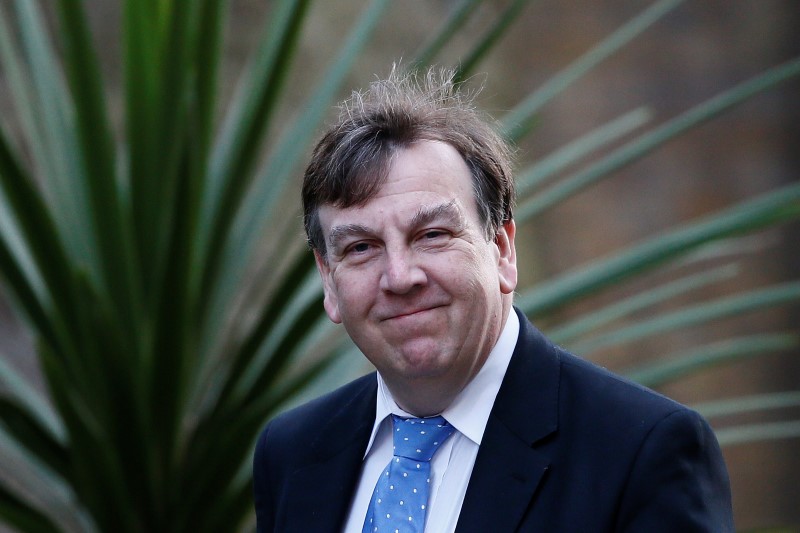By Estelle Shirbon
LONDON (Reuters) - A British minister has denied that his decisions on press regulation were in any way influenced by the fact that he had found out that several newspapers had information about his past relationship with a sex worker.
Critics in the opposition Labour Party said Culture and Media Secretary John Whittingdale should have given up responsibility for press regulation matters when he learnt that reporters had the potentially damaging story.
"It seems the press were quite deliberately holding a sword of Damocles over John Whittingdale," said Labour lawmaker Chris Bryant, who has campaigned on the issue of press intrusion.
"He has a perfect right to a private life but as soon as he knew this he should have withdrawn from all regulation of the press," he said.
Whittingdale said he had a relationship in 2013-2014, before he took up his current post, with a woman he met on a dating website. He did not know she was a sex worker, and when he found out he ended the relationship.
"It has never had any influence on the decisions I have made as culture secretary," Whittingdale said in a statement.
The row comes at a bad time for the government. The ruling Conservatives are split over EU membership ahead of a referendum on the issue in June, and Prime Minister David Cameron is under pressure for having held a stake in an offshore fund.
Cameron's Downing Street office said: "John Whittingdale is a single man and is entitled to a private life. The PM has full confidence in him."
Press regulation has been a highly political issue in Britain since a huge scandal over illegal phone-hacking by tabloid reporters in 2011 lifted the lid on close ties between politicians, police and certain sections of the media.
A lengthy public inquiry ordered by Cameron made recommendations on how to improve press regulation, many of which have not been implemented.
The suggestion from Whittingdale's critics is not that he did anything wrong in his private life, but rather that he may have been soft on media because he knew that newspapers had the embarrassing story about him.
Hacked Off, a group campaigning against press intrusion, said the public could no longer have faith in his judgement and independence in making decisions about the media.
The newspapers that had the story included the Sun and the Mail on Sunday, which have published many stories about the private lives of politicians in the past.
They said they had decided not to publish this one because there was no public interest.
"There appeared to be absolutely no conflict of interest here. John Whittingdale wasn't in government at the time he had this relationship, and there was no moral rule broken here," the Sun's political editor Tom Newton Dunn told Sky News television.

But Hacked Off founder Brian Cathcart said the explanation was "absurd" and the decision not to publish was "wholly out of character" for British tabloids.